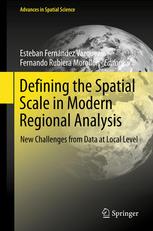

Most ebook files are in PDF format, so you can easily read them using various software such as Foxit Reader or directly on the Google Chrome browser.
Some ebook files are released by publishers in other formats such as .awz, .mobi, .epub, .fb2, etc. You may need to install specific software to read these formats on mobile/PC, such as Calibre.
Please read the tutorial at this link: https://ebookbell.com/faq
We offer FREE conversion to the popular formats you request; however, this may take some time. Therefore, right after payment, please email us, and we will try to provide the service as quickly as possible.
For some exceptional file formats or broken links (if any), please refrain from opening any disputes. Instead, email us first, and we will try to assist within a maximum of 6 hours.
EbookBell Team

4.7
46 reviewsThis book explores different approaches to defining the concept of region depending on the specific question that needs to be answered. While the typical administrative spatial data division fits certain research questions well, in many cases, defining regions in a different way is fundamental in order to obtain significant empirical evidence. The book is divided into three parts: The first part is dedicated to a methodological discussion of the concept of region and the different potential approaches from different perspectives. The problem of having sufficient information to define different regional units is always present. This justifies the second part of the book, which focuses on the techniques of ecological inference applied to estimating disaggregated data from observable aggregates. Finally, the book closes by presenting several applications that are in line with the functional areas definition in regional analysis.